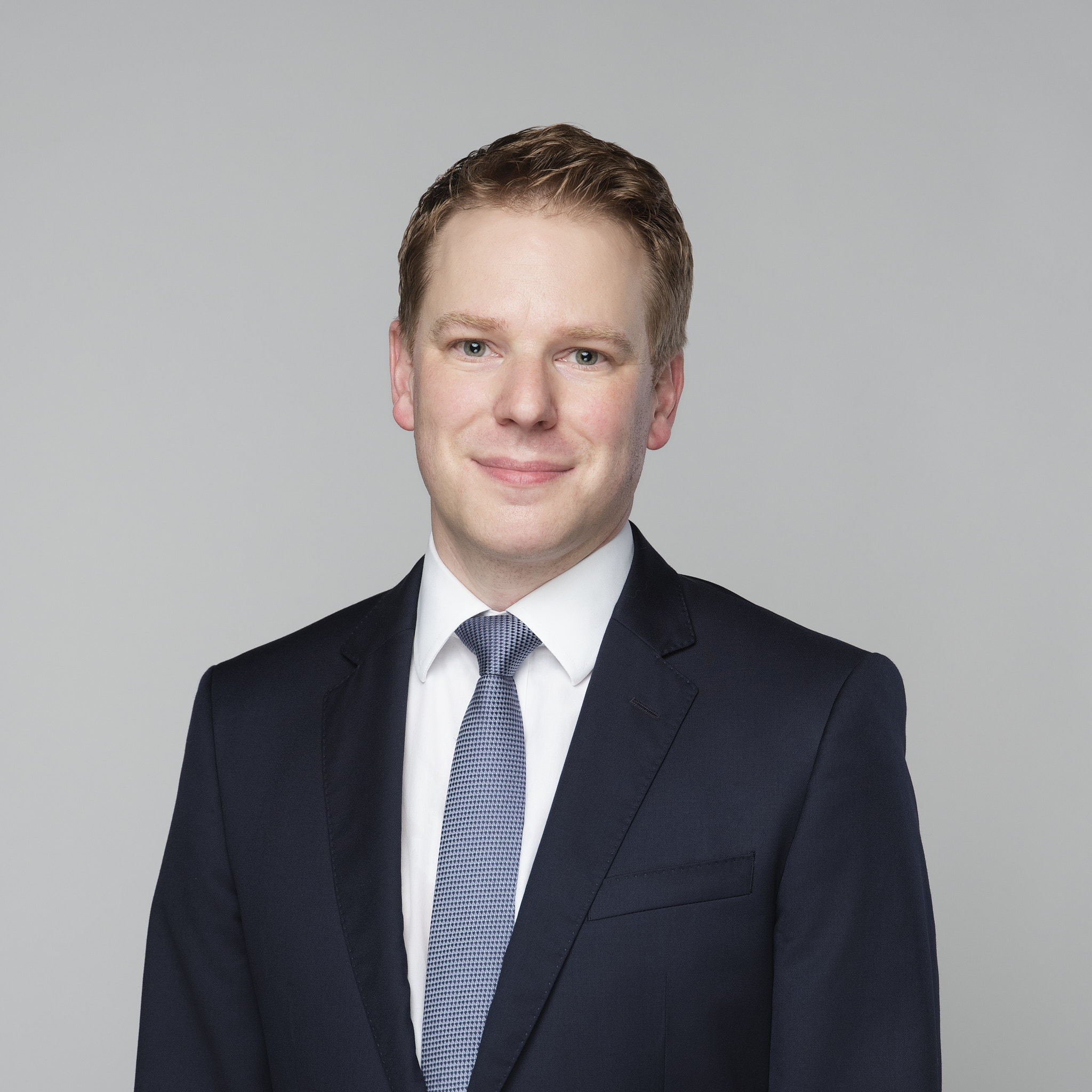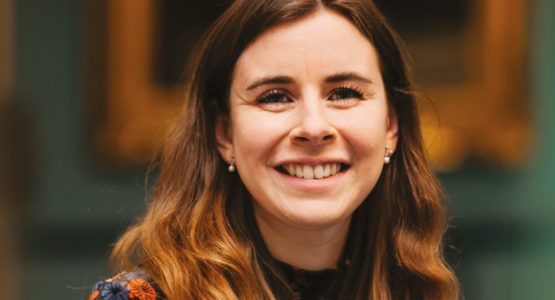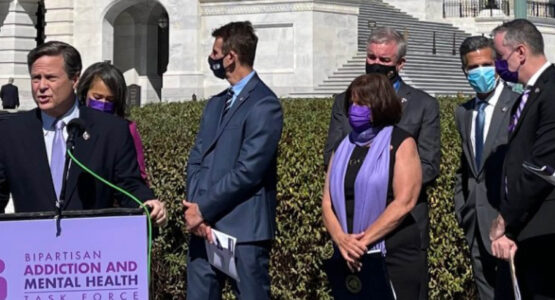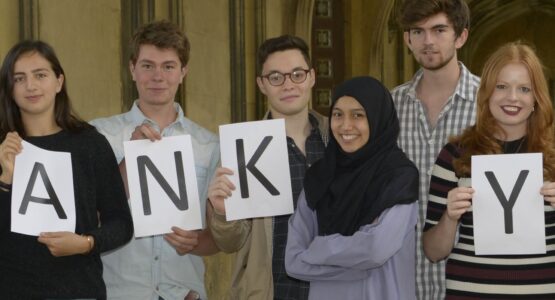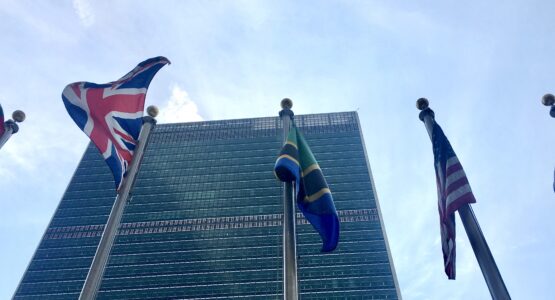Johnian magazine issue 53, autumn 2024
Global development in times of crisis
Robin Ogilvy (2001) studied Economics and Social and Political Science at St John’s. He recently concluded a six-year tour of duty as the Organisation for Economic Co-operation and Development’s (OECD) Special Representative to the United Nations in New York. He and his family now live in Paris, where he leads a 40-person team of international development experts at OECD headquarters.
What drew you to economics and international development?
I’m not sure I ever had a single reason for wanting to study Economics. I was born and raised in rural Cumbria and was privileged to attend a good local comprehensive school. There, I chose Maths, Physics and Geography as A-levels. With hindsight, I suppose they’re about quantifying, testing theories and understanding the world we live in. The study of economics involves all of these.
As improbable as it sounds, I found my way into international development through secondary school Physics. Our Physics teacher had set up an exchange programme with a school in rural Tanzania, right at the foot of Mount Kilimanjaro. For a Cumbrian sixth former at that time, a field trip to Liverpool would have been exciting and a week in the French Alps most exotic. I jumped at the chance of a month-long stay in rural sub-Saharan Africa.
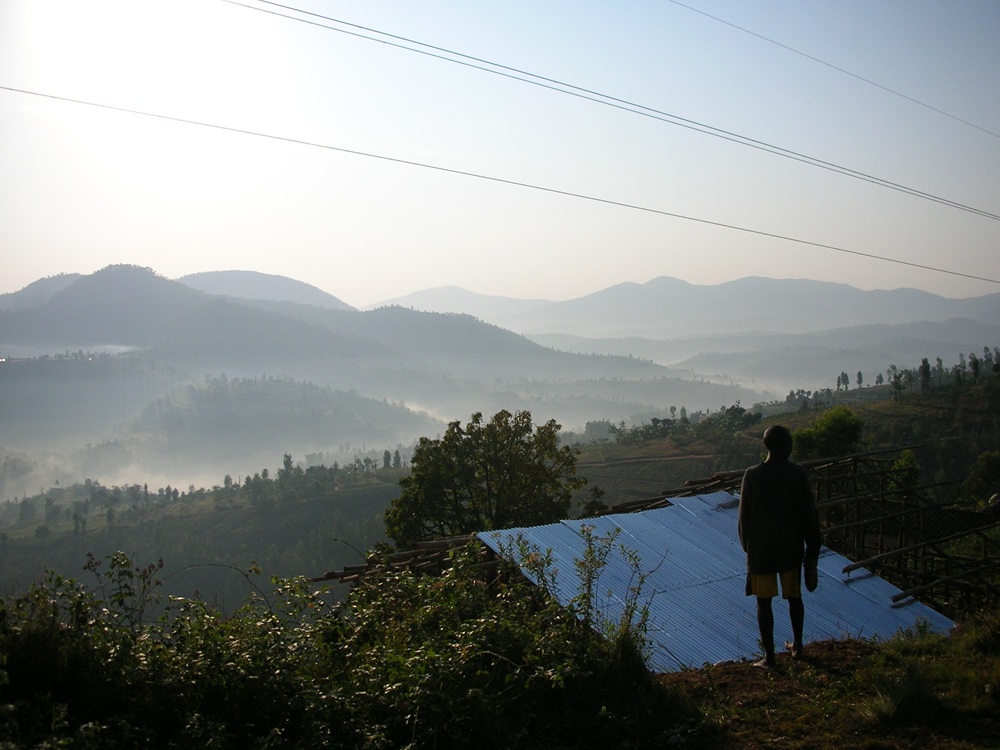
To be a good development policy wonk, you need a solid analytical toolkit, but you also need to take an interest in people and politics. That’s where Tanzania was an eye-opener. Only by immersing yourself in the day-to-day life of a community can you begin to really understand development challenges. (I was privileged to return to the slopes of Kilimanjaro a couple of years later thanks to a travel grant at St John’s.) My first job following my MPhil was a two-year stint in government in Rwanda. That turned into a four-year stay. The rest is history.
Where do you work now?
This month marks my 15th anniversary at the Organisation for Economic Co-operation and Development (OECD). It’s a quirky organisation. Although often referred to in the media as a ‘club’ of rich countries, it’s really a development organisation at heart. Born from the ashes of World War II, its precursor, the OEEC, was set up to co-ordinate American aid for the reconstruction of war-torn Europe under the Marshall Plan. And it was a success. By the early 1950s, Western European economies had grown beyond their pre-war levels. Today, the OECD includes 38 member states. Several other countries are set to join over the coming years: Argentina, Brazil and Indonesia to name only a few.
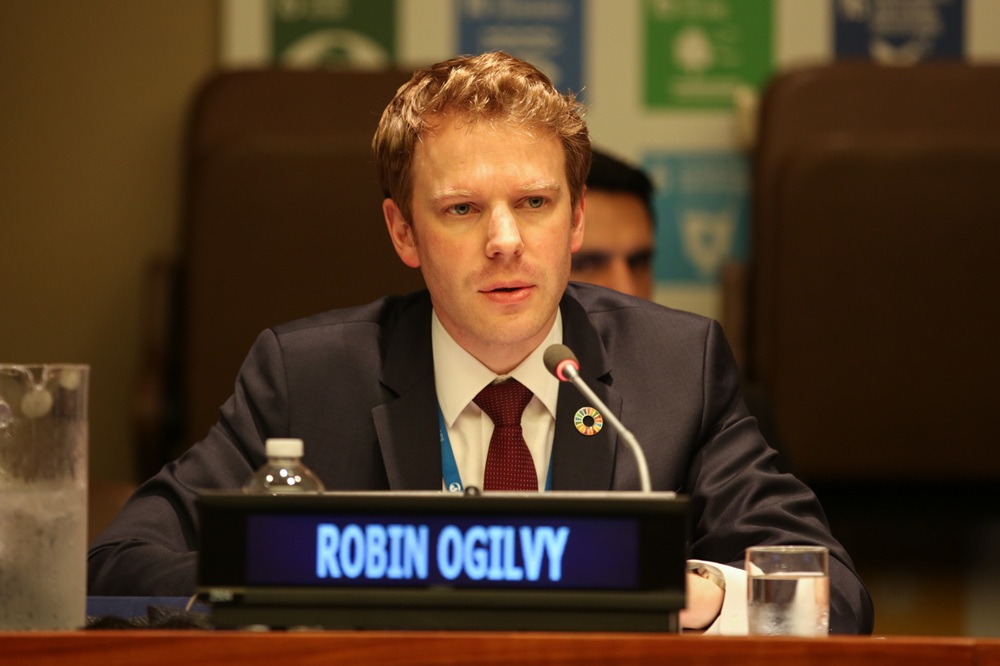
We’re neither a donor agency, nor a bank. Our currency is sound policy advice backed by good data. Today, we have around 3,500 staff – almost all based at our headquarters in Paris. We work day in, day out to deliver cutting edge analysis on everything from climate change to corporate taxation, agriculture to education. As international civil servants, we haven’t succeeded in our jobs if our reports sit on shelves gathering dust. We service some 300 intergovernmental committees and bodies. Each of them brings experts and policymakers from countries around the globe together to share lessons, co-ordinate actions and push one another to do better. Around 140,000 delegates visit our headquarters every year to participate in these meetings.
Where has this job taken you?
I’ve just returned to Paris after a six-year stint as the OECD’s Special Representative and Permanent Observer to the United Nations in New York. It’s an elaborate title for someone whose job it is to manage a relationship – in this case, one that I believe is crucial. Both organisations were born at around the same time and with the conviction that working together to advance the global good is in everyone’s interest.
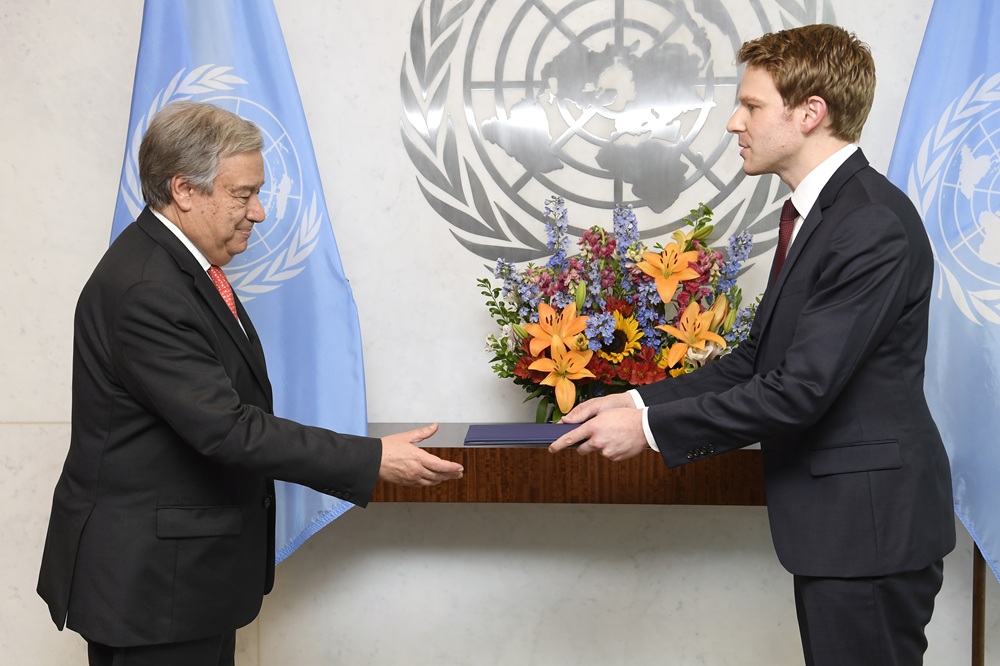
When I took up the post in New York in 2018, no one could have foreseen COVID-19. The city was particularly hard hit in the early months of the global pandemic. From our 21st floor Brooklyn apartment, we saw and heard ambulances all day and, after a while, looked out onto the row of refrigerated morgue trucks that became a fixture next to the Brooklyn Hospital Center.
My partner, Matt, is a doctor and epidemiologist at Medecins Sans Frontières, the medical humanitarian NGO (we met in Rwanda, of all places). When New York went into lockdown, our spare room was immediately transformed into a shared home office. There were moments when it felt like a crisis call centre. His working days would be filled with frantic calls from staff and stranded volunteers. Mine were focused on urgent requests from the UN and its member states for support on aid, trade and debt – among other issues.
How have international challenges such as COVID-19 and the wars in Ukraine and the Middle East impacted your work?
Multilateralism is ultimately about trust and solidarity. It’s about knowing that, regardless of the crisis of the day, countries can come together and act together for the common good. I saw this very spirit tested to an extreme as COVID-19 closed borders, disrupted trade and pushed governments into ‘me first’ policy stances. When vaccines became available, some built stockpiles that far exceeded their own domestic needs, leaving others without. Now, negotiations on a new global pandemic agreement at the WHO have been extended and their outcome remains uncertain.
The COVID-19 pandemic was above all a human crisis. Most of the eight billion people on our planet know someone who lost their life to the disease or a family affected by it. Although it wasn’t always said out loud at the UN, my diplomat friends from developing countries often said their countries felt abandoned at a time at which multilateral action was vital, reinforcing the notion of a north-south divide.
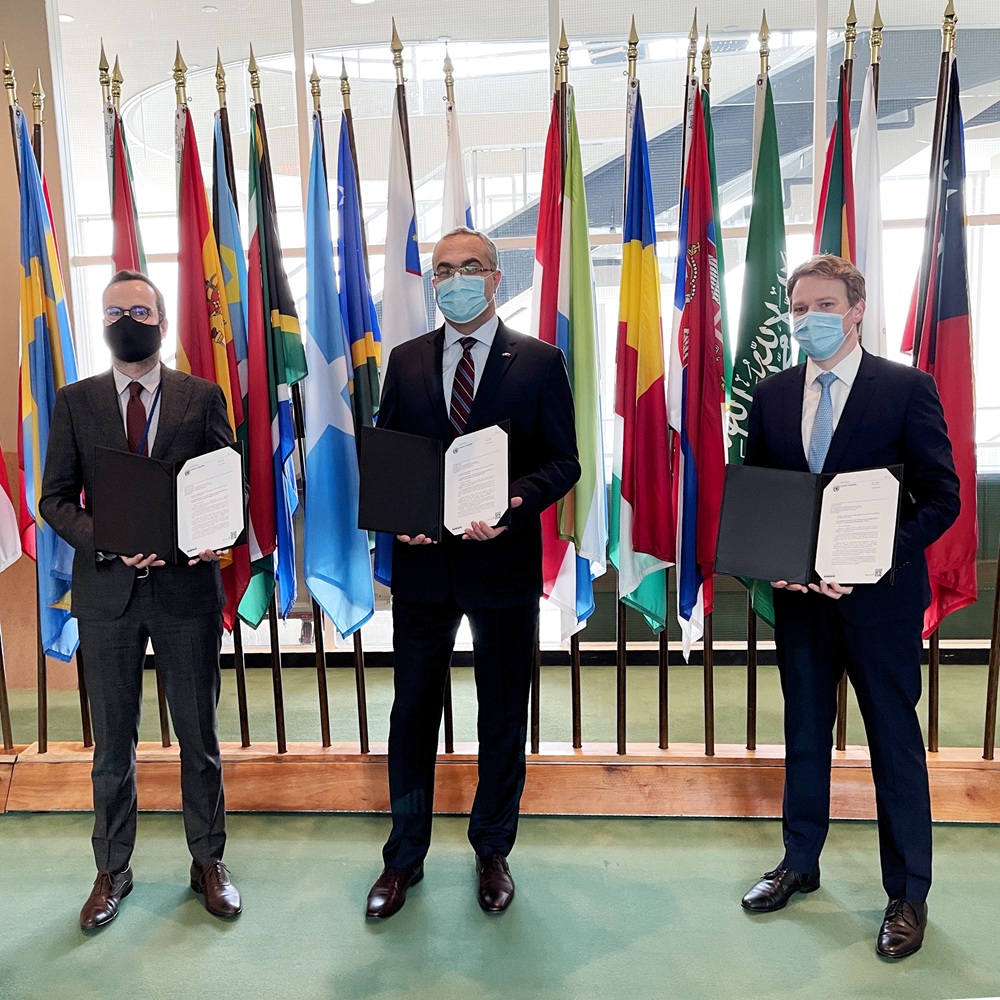
Russia’s invasion of Ukraine in 2022 led to a further polarisation of national positions at the UN. The OECD was quick to condemn Russia’s actions in the firmest possible terms, and we’ve set up an office in Kyiv to support the Ukrainian people. Escalating violence in the Middle East has brought with it further loss of life and sparked another humanitarian crisis. Today, I’d be hard pressed to think of a moment in my 20-year career that north-south, east-west tensions have been so challenging.
Working with 193 countries at the UN isn’t easy. It forces you to put yourself in the shoes of others and to question your perspectives as well as those of the countries whose interests you represent. Almost by definition, it’s a slow machine. But it’s a vital one. I leave New York with fond memories of the many hours and days spent in dark conference rooms negotiating resolutions. Exercises that at times feel like a questionable use of time and energy result in agreements that all countries can point to as a moral, social and economic compass.
What’s next for you?
While our friends took up bread-making or Peloton cycling during the pandemic, Matt and I were privileged to grow our family through adoption. Our daughter Louise joined us in late 2020 and our son Rémi arrived only six weeks later. Both employers gave us time off work as we navigated the novelty of parenthood – and the 5,000 or so nappies that they produced in their first year! Parenting during a time of heightened global tensions has made us think long and hard about the planet, the policies and the politics that we will leave behind for future generations.
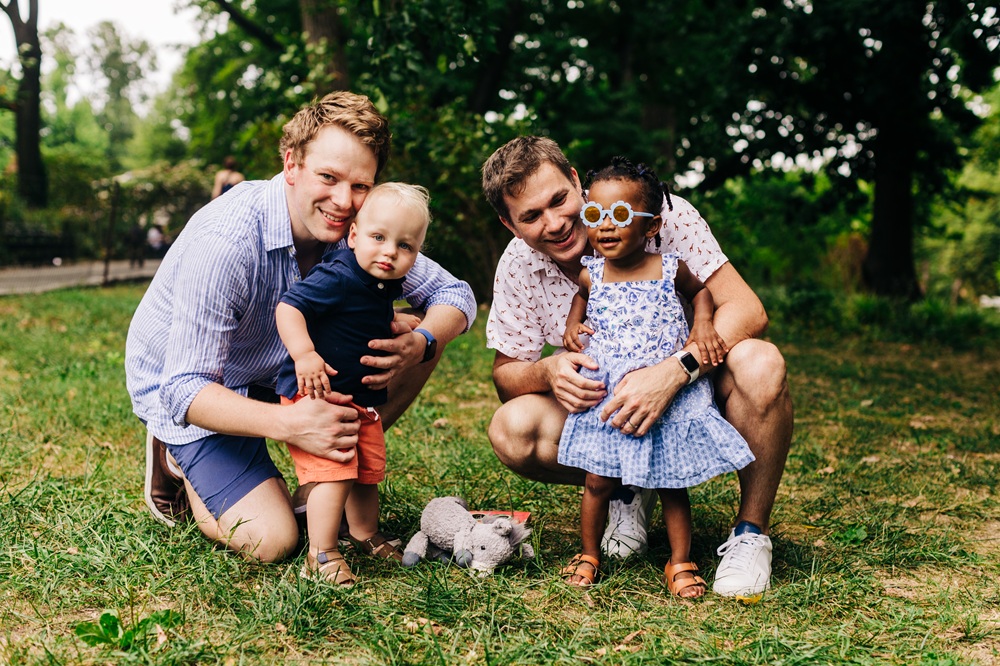
Right now, I’m settling into my new assignment as head of the OECD’s Reforms and Policies for Development Impact Division. It’s exciting. I feel as if I’m back at school. I’m once again working with world-class economists and analysts, and it’s a real privilege to be at the helm of a team that’s doing great work to improve foreign aid.
In the end, we all have our homework to do. We’re all developing countries in some way. To quote the late Koffi Annan, ‘In every country of the North, there is a bit of the South; in every South there is a North.’
Written by
Robin studied Economics as an undergraduate and went on to pursue an MPhil in Modern Society and Global Transformations, both at St John’s. He began his career as a Fellow of the UK-based Overseas Development Institute (ODI) in Rwanda and then went on to work for the United Nations Development Programme (UNDP). Since 2009, he has served in various roles at the OECD with a focus on international development.


